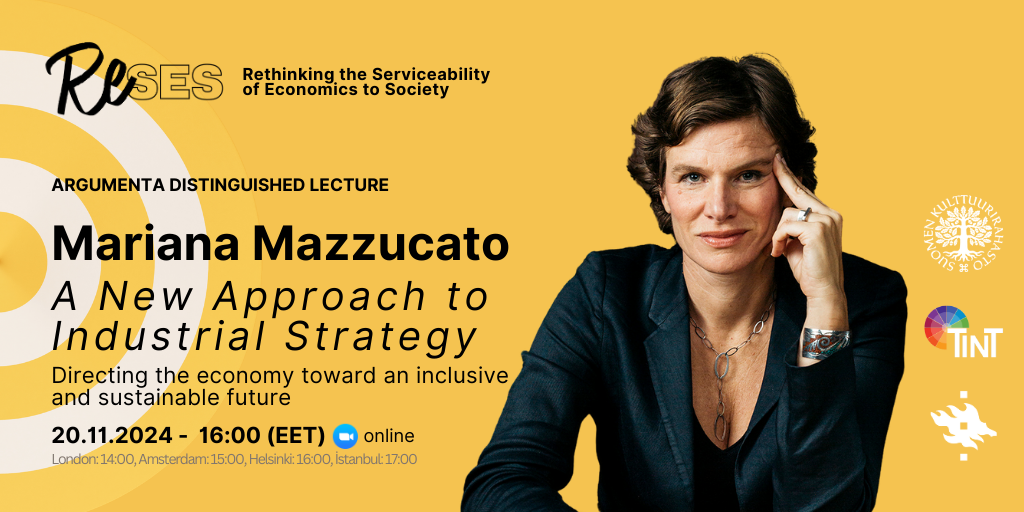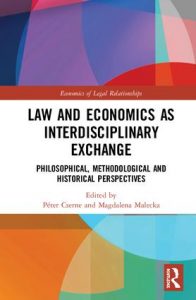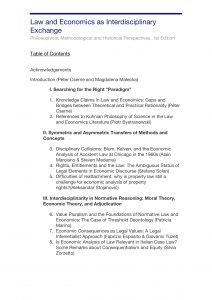
Professor Michiru Nagatsu gave his inaugural lecture on 29 May 2024. This is the script of that fascinating and thought-provoking lecture.
I’d like to use this special occasion to share my recent thoughts on sustainability with you. As you can guess from the title of my lecture, my intention is to give you an example of the questions practical philosophy could grapple with in practice. It is not a standard question I address in my day job as a philosopher of science, but nevertheless I believe that it is an interesting and an important question we may want to investigate more seriously than I can do here today.
Outline
I will start with “the end of the world”: what is it? and what does it do to us? In the second part, I will discuss how researchers in the university could respond to the end of the world. I will suggest that you ‘Slow down!’. Finally, I will conclude the lecture by introducing an alternative conception of sustainability, with an accomp on anying ethical attitude called hope.
The end of the world
So, let’s start with the end of the world. This graph [Figure 1] shows how often the phrase ‘the end of the world’ appeared in a database of English books from 1900 to 2019. The frequency is not that high compared to ‘collapse’, for example, but its usage is increasing as you can see; in 2019, it appeared 4 times more frequently than when I was born, which was 1978.

Figure 1. The relative frequency of the phrase “the end of the world” in English books. (Source: Google books Ngram Reader (English 2019).)
This is a similar graph [Figure 2], but with a database from English fiction books. The frequency is slightly higher, and the trend is generally upward, but not as sharp an increase as in the other graph. One can tell from the two graphs that the non-fiction books increasingly talk about the end of the world, catching up with our fictional imaginations, as it were.

Figure 2. The relative frequency of the phrase “the end of the world” in English fiction books. (Source: Google books Ngram Reader (English Fiction 2019).)
But which end and which world are we talking about when we talk about the end of the world? According to Lynskey (2024), just published in April, we can distinguish three versions.
We know that the first one is a certainty, based on geoscience and astronomy. In this sense, it is a bit like our own death, which we know is also certain. In fact, if we normalize a bit and convert one billion as a decade, we could say that at the age of 46, the earth is in a kind of mid-life crisis, with which I can fully sympathize as an almost 46-year-old middle-aged person.
The second meaning is also almost certain, and there is little we can do about a comet or volcano, but humans added the Bomb in 1945, just to make it more realistic within anyone’s lifetime.
The third meaning is more nuanced, because here the world refers to our complex industrial-capitalist civilization, the so-called the world as we know it. And we might be most afraid of the end of this world, because we don’t know what comes after. The word “barbarism” captures our fear very well. The alternative term “simplicity” is more ambivalent.
To this tri-part categorization, I would like to add my fourth type. This end refers to the time when a story we used to tell each other loses its grip, or a magical spell. Since the story gives meanings to our collective life, its losing appeal means that a particular form of collective life comes to an end. “What shall we play next?” we might ask, like a small child who got bored of a game.
Narratives of progress
But what is it that has lost its appeal? According to a recent analysis (Danowski and Viveidos de Castro 2017), it is a set of optimistic narratives of humanist progress, which says that we are successfully implementing the project of making human life on earth better and better. In particular, this narrative assumes that scientific and social progress go hand in hand in a specific way: namely, science and society, or science and policy, are linked in such a way that society gives resources, autonomy and time to science; science then lays the golden egg for society, which in turn gives dividends back to science. Repeat.
This idea of progress, and its positive feedback loop between science and society, face many challenges, which are not seen merely as a setback against the backdrop of otherwise steady march toward enlightenment. Rather, the challenges indicate the destructive nature of this very loop. I might be too honest, but overall, I agree with the assessment by these authors that ‘we have no idea what to do about it.’ In response to this crisis of meaning, however, there has been a proliferation of new ideas and concepts in academia, which try to critically reflect on the uniqueness of our time. We are at the crossroads, many suggest, nudging us to take this turn or that turn. But maybe we got lost because we have made too many turns.
The ends as stories
If theoretical turns in academia merely motivate us to come up with even more clever turns, what kind of alternative stories will hold a collective together, namely orienting and motivating us to act differently? Are there any secrets for success of a narrative?
Some critics note that convincing stories themselves need to have a template of beginnings and ends for them to provide a meaning in between. I want to challenge this theory in the last part of my lecture. But before that, let’s have a quick look at a more concrete sustainability debate, just to see that the narrative of beginnings and ends is also at work in an otherwise very technical and empirical debate.
Narratives on growth
In sustainability science, the limits to growth have been one of the central questions for more than 50 years, since the publication of the book with the same title in 1972 (Meadows et al. 1972). In recent years, the debate has been framed as a feasibility of so-called ‘decoupling’, that is, achieving economic growth all the while reducing its net negative environmental impact.
To put simply, there’s green growth believers on the one side, and degrowth believers on the other, who envisions economic degrowth of the North and growth of the South that would eventually lead to a global steady-state economy. I don’t have time to go into the scientific nuances of this debate here. Rather, I just wanted to highlight the fact that the whole debate is closely connected to the question of how to tell a story of beginnings and ends, as much as it is about the scientific data, measurement and modelling. The debate cannot be resolved by evidence alone, because evidence must be interpreted in terms of stories we tell each other.
In other words, depending on which narrative framework you adopt, the same empirical data is interpreted differently [Figure 3]. Should we celebrate the achievements of the industrial capitalism? Or should we lament what it has destroyed and is destroying? Should we be more nuanced and try to see both the rabbit and the duck at the same time? Can we declare that the glass is half-empty AND half-full, suspending any overall evaluation of its content?

Figure 3. “Kaninchen und Ente” (“Rabbit and Duck”) from the 23rd October 1892 issue of Fliegende Blätter. (Source: Wikimedia.org.)
What can researchers do in practice?
You might ask: Is this kind of grand questions something that we as researchers should be concerned about? Aren’t we better off keeping ourselves busy with what we are trained for and good at? For example, we could do some survey on these questions with clever design, perhaps? or a systematic, interdisciplinary literature review with a new method? Maybe we need first to do more rigorous conceptual analysis to dissect ambiguous terms into facts and values, epistemic and non-epistemic, legitimate and illegitimate, and meaningful and meaningless.
I don’t discourage academics from doing all these things, which will surely be interesting. But I’m concerned with something more practical here. To put it simply, I suggest that we situate ourselves in the world, attend to our feelings and those of others, and share our sentiments and concerns, rather than trying to measure, model and manipulate the world from an imaginary, detached position.
Reclaiming-healing
My biggest inspiration in thinking along this line comes from the philosopher Isabelle Stengers, who wrote this great book of agitation (Stengers 2018). Stengers discusses dual un-sustainability of economic development and what she calls “fast science”, both of which are entangled in a complex way.
Importantly, she points out that it is not enough for us to be critically reflexive and transparent about these situations. In game theoretical terms, we as citizens and researchers are like the prisoners of the dilemma, unable to cooperate with each other, despite, or because of, the full knowledge of our predicament. Alternatively, we are unable to cooperate in a more ecologically adaptive way, because we are hyper-cooperative, conforming to the assigned social roles just to keep our complex society running. The crucial first step then is to notice that we don’t feel very well in those roles.
Slowing down…
Unlearning old habits is the next step. In this process, it is important to attend to your embodied feelings. Mild forms of fear such as hesitancy, reluctance, or concern should be expressed and articulated, rather than suppressed.
If we suppress those feelings, we risk becoming more manipulable by others, and more vulnerable to environmental harm. But because we are social animals, we need to exchange and share with others those sentiments and concerns to let them motivate us for joint action which we find more meaningful and adaptive. Academic activism in this sense, is not necessarily about ‘dropping out’ or protesting ‘in the streets’, although these forms of activism is also fun and important. In the words of the epidemiologist Donna Armstrong, everyday activism refers to ‘the simple act of interrupting the daily, normal, social role-playing by speaking “off-script” within our bureaucracies and within all of the societal organizations that comprise our complexity.’ (Armstrong 2014, p. 205). It is a micro-action to challenge the seductive power of the fictive play that no longer serves us.
It is these moments of “off-script” play, and their cumulative and non-linear ramifications, that might be able to transform us, allowing us to reinvent ourselves in new relations with each other and with our environment. We don’t need to blame “the system” as it probably doesn’t motivate us. Instead, we could start cultivating the art of slow science as apprentices now. There is no methodology for slow science. We just have to be experimental and opportunistic, and foster those transformative moments to let new values emerge.
Sustainability
But to what end? Isn’t it all in vain when sustainability is a lost cause, with a diminishing prospect of staying within carbon budgets, 2.0 degrees, or planetary boundaries? What’s the point of the apprenticeship if it won’t help us achieve those goals?
To answer such a voice of despair, I would like to conclude my discussion by advocating an alternative ethical attitude, namely hope. This attitude is inspired by Tim Ingold’s recent work on sustainability (Ingold 2024).
It is an alternative in two ways: first, seen as an ethical theory, it is not based on the standard utilitarian, consequentialist framework for practical reason, which concerns trade-offs, discounts and optimization of known goals and values of well-defined agents; second, seen as a narrative, it does not require a clear beginning and an end. Whenever you start is a beginning, and hope doesn’t presuppose the end, be it the end of history, the world, or of life. It is an ethic with no end in view. And yet, at least it seems to motivate me to care about the world as a researcher and as a person.
Now, this narrative without beginnings and ends reminds me of the famous Confucian metaphor of the Way, or the Path, with no crossroads. Confucius of the Analects did not talk about choice, as the philosopher Herbert Fingarette famously pointed out in his classic (Fingarette 1972/2023). In this view, there is no choice between this path or that at the crossroads, leading you to hell or heaven depending on your decision. For Confucius, there is no choice, really: “either one follows or fails.” (xii). But crucially, you can do it better or worse. It is an art, not a choice.
To me, hope as understood this way is a promising, even coherent, philosophy for sustainability.
No end
I started my lecture with the end of the world, particularly its specific interpretation as a loss of compelling narratives in the face of looming social-ecological disasters. Stengers calls this “cold panic”, a general state of political impotence (2018), and urges us to become reclaiming activists in our own situated way in academia and elsewhere. I have addressed the snigger’s pessimism about the success of such a micro-scale apprenticeship of activism, by introducing an alternative ethic which Ingold calls hope, accompanied by an alternative notion of sustainability, sustainability of everything for everyone for all time. Interestingly, with such hope, I feel motivated to live and research with care for the world. In the end, I don’t seem to need the end of the world as a grand schema to orient myself. I’ll just follow the path, and I’ll try to follow it well. I hope you will follow yours, and that we will meet along the way, and learn from each other.
Thank you for listening.
Michiru Nagatsu is Professor of Philosophy of Social Science and Sustainability at the University of Helsinki, Finland. Nagatsu’s latest projects include The Art of knowing through (un)learning: A Transdisciplinary research study on time, play and dance with children and trees (co-led by Dr Anna Rainio, KONE foundation, 2025-2028) and A tree of knowledge: Practicing slow science in accelerating society (co-led by Dr Anna Rainio, HSSH Catalyst Grant 2024-2025. The lecture was presented on 29.05.2024.
References
Armstrong, Donna L. (2014) Seducing Ourselves: Understanding Public Denial in a Declining Complex Society, CreateSpace Independent Publishing Platform.
Danowski, Déborah, and Eduardo Viveiros De Castro. (2017) The Ends of the World. John Wiley & Sons: New York.
Meadows, Donella H., Meadows, D.L., Randers, J., Behrens_III, W.W. (1972) The Limits to Growth: A Report for the Club of Rome’s Project on the Predicament of Mankind. Universe Books: New York.
Fingarette, Herbert. (2023/1972) Confucius: The Secular as Sacred, The Apocryphile Press: Hannacroix, NY.
Ingold, Tim. (2024). How to imagine a sustainable world. Acta Borealia, 0(0), 1–9.
Lynskey, Dorian (2024). Everything Must Go: The Stories We Tell About the End of the World. Pan MacMillan: Basingstoke, UK.
Stengers, Isabelle. (2018) Another Science is Possible: A Manifesto for Slow Science, translated by Stephen Muecke, Polity: London.



